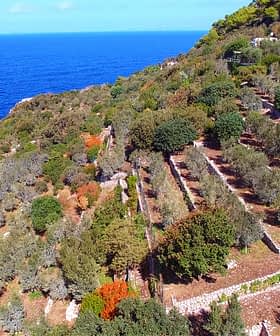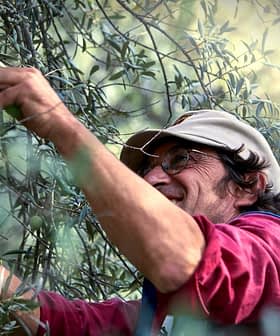TAP 'Confidant' as Trial Looms, Prepares to Replant Uprooted Trees
The Trans Adriatic Pipeline said the company is confident ahead of the upcoming trial. Replanting of the olive trees at issue in the trial is scheduled to begin in February.
 Olive trees removed by TAP waiting to be replanted.
Olive trees removed by TAP waiting to be replanted.Vugar Veysalov, the head of external affairs for the Trans Adriatic Pipeline (TAP), told Olive Oil Times the company would cooperate during its upcoming trial and remained confident it would be found not guilty on all counts.
Veysalov’s statement comes as the TAP prepares to face charges of unlawfully uprooting olive trees and causing environmental damage in Italy’s Puglia region.
In February TAP is due to start the replanting of the olive trees back to their original location, following an analysis confirming that they are still Xylella free.
“TAP is confident in proving the correctness, under all points of view, of the conduct of the company and its managers,” he said.
Olive Oil Times requested an update on the status of the olive trees which TAP had uprooted to make way for the gas pipeline — an action that sparked widespread protests.
See Also:Trans Adriatic Pipeline“In February TAP is due to start the replanting of the olive trees back to their original location, following an analysis confirming that they are still Xylella free,” Veysalov replied.
Photos provided by the company appear to show the remaining olive trees are in good condition.
Veysalov added that a total of 2,109 olive trees had been affected by the project and that 351 (16.6 percent) of the trees had been “preserved on-site” while 1,189 (56.4 percent) had been temporarily relocated to a storage area.
According to Veysalov, 563 trees (26.7 percent) were destroyed after “competent phytosanitary authorities” concluded they were infected with Xylella fastidiosa and six of the ill-fated trees (0.3 percent) were said to have “dried naturally” or “been destroyed by accident.”
Veysalov reiterated claims made by the company in 2017 that the TAP project in Italy would impact around 2,100 olive trees. At that time the company denied claims that up to 10,000 olive trees would be uprooted to make way for the controversial gas pipeline.
The company insisted that a maximum of 2,300 olive trees had been earmarked for removal — a calculation based on 231 trees which stood in the project’s micro-tunnel area plus a further 2,000 which lined the eight-kilometer (five-mile) route from the micro-tunnel to the pipeline’s receiving terminal.
At that time a TAP spokesperson conceded, “the 10,000 figure is if we include the Snam section from the TAP pipeline receiving terminal to Brindisi.”
The company was keen to point out their commitment to caring for the healthy olive trees and eventually returning them to their original sites.
“Being stored in the nursery ensures that risk of infection from the Xylella fastidiosa bacterium, currently threatening olive trees in Italy, can be prevented,” a representative of TAP said.
Veysalov confirmed that the looming court case had not halted work on the pipeline. “Works onshore and offshore continue in line with the project schedule,” he said.
The pipeline’s construction is reportedly on schedule. Veysalov added that 91 percent of the engineering, procurement and construction phases had been completed by the end of December 2019.
Ninety-nine percent of the pipes between Greece, Albania and Italy are in the ground and reinstatement along the route is 99 percent complete.








